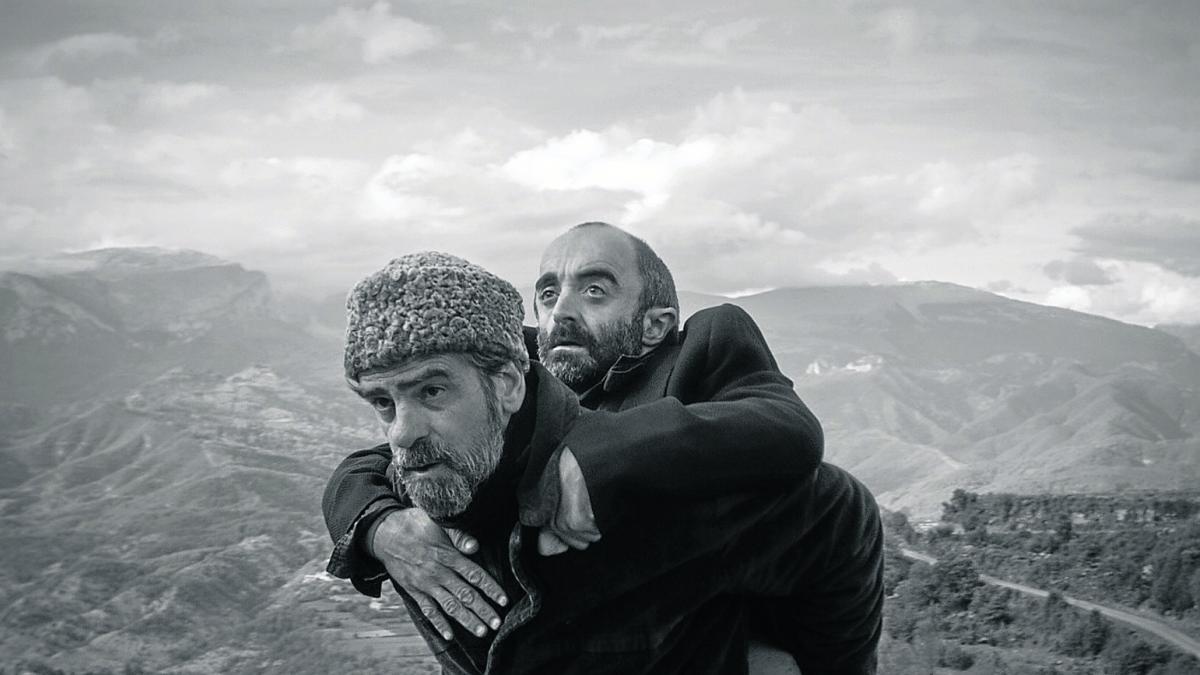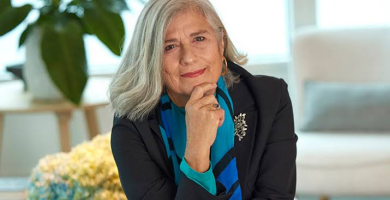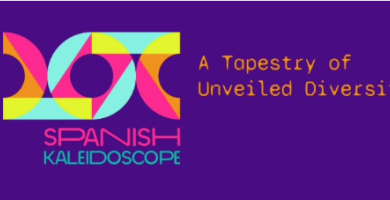
JO SOL: "I would never be devoted to films if they told me what I have to do, who has to like it, I would do something else."
This month we interview Jo Sol, director and scriptwriter from Barcelona, who began to work in audiovisual in the field of anthropology in countries such as Cuba, Mexico and India.

His latest film Armugán won the ecumenical award and the prize for best music in the PÖFF Black Nights Festival in Tallinn, Estonia. We talk with him about Armugán, about his films and a different way of understanding cinema which shows a reality which is often ignored.
How did your interest in the world of films begin?
It was so long ago that I don’t remember. I come from the time when there was still the double weekend programme, the spectators’ day on Wednesdays in the Capsa, the film archive in Sarrià or Calle Princesa in Madrid. It was fascinating to experience those emotions in a shared darkness, with full attention, without mobiles vibrating all around. A new release by Lynch, Kubrick, Erice or Carax was an event awaited during months and discussed for weeks.
What made you want to dedicate yourself professionally to films as a director?
I discovered a tool, an instrument, even an arm if you like. I was living in Mexico and I cooperated with anthropologists who went to very remote areas of the country to meet the most basic needs of different indigenous peoples. Many of those communities had an interest in expressing themselves with these media. Doing politics. In a way it was an updated form of what many of the great Mexican muralists did at the beginning of the 20th century, explaining their story to the people who did not know how to read or who spoke pre-Hispanic languages. I also experienced this in India. Documentaries were an essential element for independence in the colonial period. Through images, they discovered resistance strategies; they identified models of oppression. I thought that undertaking visual anthropology was an extraordinary way of living and thinking. I was lucky to be able to do this on the ground, not in a school.
What is the spark which attracts your attention in a story in order to bring it to the big screen?
An idea is always an event. A party for a creator. But there are also many mirages. False illusions. You are not always ready to go where your imagination or curiosity wants to take you. Then you take a step back, and you wait again, until you are possessed by a strange convincement which tells you that that story wants to be yours. It wants to live with you for a time. This happens a long time before it is written, before a team exists. It is a fascinating process which is nothing like a professional commission, or the desire to produce a product which fits in with the market. I would never be devoted to films if that was the experience for me. If they told me what I have to do, who has to like it, I would do something else.
Your latest film Armugán won the ecumenical award and the prize for best music in the PÖFF Black Nights Festival in Tallinn, Estonia. Congratulations! Some time ago we had as a guest and we interviewed the director of the festival, Tiina Lokk-Tramberg, at a conference devoted to festivals. What was your experience in Tallinn, one of the class A festivals?
Tallinn is a city with very strong links to cinema. To great cinema. A mythical film like Stalker was shot there. Recently also part of a blockbuster, Tenet. The PÖFF is a key event in its cultural life. It was very important for them to save the festival this year, and I am very happy to have made a modest contribution, presenting Armugán, which was so well received! It was also important to go there physically; they deserve it. Tiina wrote to us recently saying that this year they had broken audience records, despite everything. She is passionate about what she does, as is her whole team and especially the public. They deserved overcoming this adversity in the way that they did.

How did this project arise and what do you want to explain to us in this very personal story about this “finisher”, a character who lives in the mountains, in a certain way distant from everyone, but who is sought at a time of need?
Armugán is an end-of-life doula. That’s how the film arose. An end-of-life doula, in this case for my father. No one is prepared for this, but it is much worse, for me, to delegate it to “professionals”. Nowadays everything is delegated. Some time ago life was expropriated in order to convert it into a sort of management of minor complaints. Getting by, making do, dodging blows, and not thinking too much. Very well. Everyone is entitled to do this and we can be as cynical as we are asked to be in order to survive, but do we really want to conceal such an important part of life? Are we sure that we want to live fearing death? This is the question to which I obtained a very clear answer after my dear father’s death. Having been present and available opens up the possibility of being able to integrate it as a true and valuable experience, despite the absence. Something which remains. Maybe an awareness. What is more real than the finite nature of life? Hiding, hiding it collectively can be very useful to sign mortgages and keep consumption high, morale high, but on a human level it leaves a deep void.
Do you think that it is more difficult to position more inclusive films which show realities which cinema normally avoids or, even worse, stereotypes, giving an idea which is completely removed from the reality of, for example, disability?
I try not to use that word, precisely to avoid an ableist logic. I try to talk about diversities. To show that as humans we are diverse. It seems obvious, but we continue to talk about normal and subnormal. About rules and categories which create borders which discriminate. I am lucky to have learnt so much making films such as Fake orgasm, Vivir y otras ficciones, or above all the series Tréboles de 4 hojas, to understand that true disability is created by the supposedly “normal” person, the able person, the productive person, when they look at the “different” person. This is really disabling, when you cannot see that diversity is what makes us human. Armugán stars Iñigo Sagastizabal, who is a fantastic artist. A dancer, an actor with a unique expressiveness. Is he really disabled because he’s in a wheelchair? Who would dare to state this after seeing his work in the film? I don’t see a disability anywhere.
For you what does it mean to produce and to make independent films? How do you work in the world of independent audiovisual production?
“Independent” is a vain, false word when associated with the concept of production. Nowadays anyone can use it with full legitimacy, since it is linked to an aesthetic category and not to a philosophy, a spirit or a budget. At present Independent does not mean free from the need to please, to sell, to fit in with a market. Nowadays to finance a film they ask you for a marketing plan, a target audience study. For most producers, TV executives, etc. this is obvious. For me it is completely aberrant. Above all if you see the trap. The viewers consume out of habit, and for years they have been fed irresponsibly with a more than questionable quality, increasingly degrading until all alternatives are annihilated. That is why you can’t be independent. Independent of what? If you want to fund a film you have to abide by the criteria of the television companies. This is not my opinion; it is objective information and if we look at what happens in other countries, which have been broadcasting programmes with high cultural quality for years, we can confirm it. If you deny audiences the possibility of thinking because you exert a control function rather than one of stimulus, and you are committed to always repeating the same faces, the same jokes, the same indoctrination, you eliminate spaces for reflection, and also for criticism. For me this is a very serious issue and I regret the lack of response to the total elimination of spaces for the true promotion of films, other than those for reproducing galas and awards reflected in the dreams of a star system which personally I believe is not very connected to the future and which lacks a broader vision.
In one interview you mention that rather than independent cinema you make urgent cinema. What is urgent cinema for you?
That’s exactly the case. Giving films back their capacity to influence the cultural story. And I’m not talking about what is already the inestimable contribution of Netflix to accompany contemporary loneliness. I’m talking about that capacity to make everything which does not want to be seen visible. So many realities would be ignored if someone did not make them visible by writing, representing them in stories which come to form part of the collective consciousness. I still believe in this vocation. Maybe because of the origins that I was talking about before. I am not here to entertain anyone. But I don’t invent anything either. What I now call urgent cinema years ago Solanas called Poor cinema or Third cinema. I believe that it is important for the digital generations to know the contributions of these currents, to understand that cinema has never been about a single idea and that, often, on the margins of the industry essential contributions have arisen to understand what we are. However, I’m not talking about theory, but rather about a practice which precisely in the coming months you will be able to see in Barcelona in an exhibition which shows this evolution with very specific examples.
Can you tell us the path from when the conceptual part of a project arises to the search for funding for one of your films?
Each project follows a very different path. Right now I am making an international coproduction, which for me is a blockbuster, but who knows, tomorrow I might resort to more inventive ways if what I want to explain does not have the prior support to make it. I still defend forms of enrichment which go beyond everything which is obvious. There are other scales to place value on what you do and what you are worth beyond box office results or what is said by a press which is often committed to equally obvious servitude.
Is the funding part the one with which you face the most problems?
The material limit is always a determining factor, but I have never wanted to accept that it is in an absolute manner. I have made films which have been seen internationally with a very small budget. I often propose forms of exchange which offend many people. On the other hand, others understand the positioning and see other forms of rewards by participating in collaborative productions and, even so, in view of the results this often ends up paying off. Sometimes money even appears. At some time or another we should transfer this question to those responsible for legislating, for providing the resources for the production of various works with the capacity to contribute other values, not just those enshrined in entertainment, especially now that series already fulfil this function wonderfully with their eternal promise of eternity, hours and hours of guaranteed entertainment. There must be something beyond this, some alternative to respect diversity. Some other function for this powerful and so contemporary medium. I defend that there is and that it is essential that it exists. And it is urgent.
Once the film is finished, what are the distribution channels for an independent film?
Promotion in festivals, distribution if you get an international distributor interested. I rule out national distribution from the outset. We already know that the films will be seen by giving them away on the platforms, in a way following the model of Spotify and if you are a musician you will know what I’m talking about. The platforms have been bold, proposing the reinvestment of part of their profits in own production; they know what the public wants. This is quite legitimate but, again, aimed at the same idea of what people need to see. Who is in charge of forcing the big telecommunications operators to use the traffic devoted to the consumption of contents on the Internet to benefit the protection of the cultural fabric and its diversity? Maybe one day we will think that there are also people who appreciate other contents which are no less important.
As you mentioned, festivals are one channel, but how do you know which festivals are adequate for this type of film?
Through experience and seeing what they programme, but I should warn you that if you do not know the programmers, they will not see your film. I feel bad seeing young people investing considerable sums in the fees for festivals which do not have the capacity to see everything that they receive. In my opinion, it is quite a questionable business.
And from there how does it get released in cinemas?
It doesn’t. There are hardly any cinemas left and those that there are, two or three in a city like Barcelona!, can have a fantastic programme of very important worldwide films because these really wonderful films made in Iran or in Taiwan or Argentina, for example, with risky and minority cinema, cannot find cinemas in which to be shown and small distributors are in charge of their commercialization in Europe. There is fierce competition, the cinemas cannot afford the rent of the cities and the lack of protection means that there are less and less. The audience finally accepts personal consumption at home, with a huge offering at very affordable prices. The next film that I’m going to release will not be Armugán, but rather Nos queda la noche and it will not be released in a cinema but a museum.
When will we be able to see Armugán at the cinema in Barcelona?
In the spring, in the autumn, never... that is the truth of it. Despite this uncertainty, those of us who have always lived with our suitcase packed, know that we will continue to write and to produce and that the value of resisting, of contributing something valuable is strong enough to resist over time, inspiring necessary debates and accompanying thought; we know that we will carry on despite everything. Who talked about giving up?









